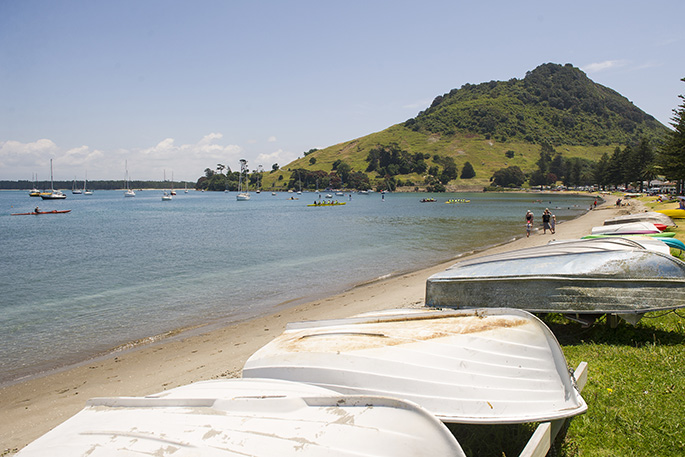Last year Tauranga City Council set out to better understand the current state of the city's environment, and the community's aspirations for its future.
Environment Committee chair Steve Morris says this work is an important first step towards building a city-wide environment strategy for Tauranga.
'We want to ensure that our city grows in a way that protects and enhances our natural environment and our community's quality of life,” he says.
'The wastewater overflow that affected Pilot Bay recently is a reminder that our environment is vulnerable, and that we need to make protecting it a priority. A priority for the council, for the city and for each and every one of us.
'We all need to better understand the issues, and our own impact. The environment strategy will help us identify outcomes and targets for our city's environment, and then we can work towards them together.”
The research involved a two-pronged approach to collect the information the council needs to develop the strategy.
'We started with scientific research to get the hard data on things like greenhouse gas emissions and fresh water quality in our city. Then we asked people what's most important to them and sought guidance from experts in environmental sustainability,” says Steve.
The study found there is an average of 630kg of waste produced per person, per year in Tauranga, while the city generated 5.9 tonnes of carbon dioxide emissions equivalent per person in the 2015/16 financial year (Wellington, in comparison, generated 5.7 tonnes per person in 2014/15).
The research also identified areas, like biodiversity, air quality and emissions from shipping, which require further investigation and data collection for the council to fully understand.
An online survey conducted as part of the study, and which received more than 1000 responses, revealed people are concerned about water pollution, loss of biodiversity, the long-term effects of climate change and the pace of the city's growth, with the risk of loss of urban greenspace.
'Many thanks to everybody for your contributions – partners and stakeholders, and the thousand or so community members who shared their knowledge and views,” says Steve.
'We will use the learnings from this research phase to develop the Tauranga Environment Strategy in collaboration with stakeholders, before bringing it back to the wider community later on in the year.”
The strategy will define aspirational outcomes for the environment, priorities and targets.
'On this basis, we will develop action plans to deliver on the aspirations of the strategy.”
The research will also inform other strategies and plans, like transportation and urban planning, and provide a baseline to monitor change and the effectiveness of any actions the council takes.



0 comments
Leave a Comment
You must be logged in to make a comment.